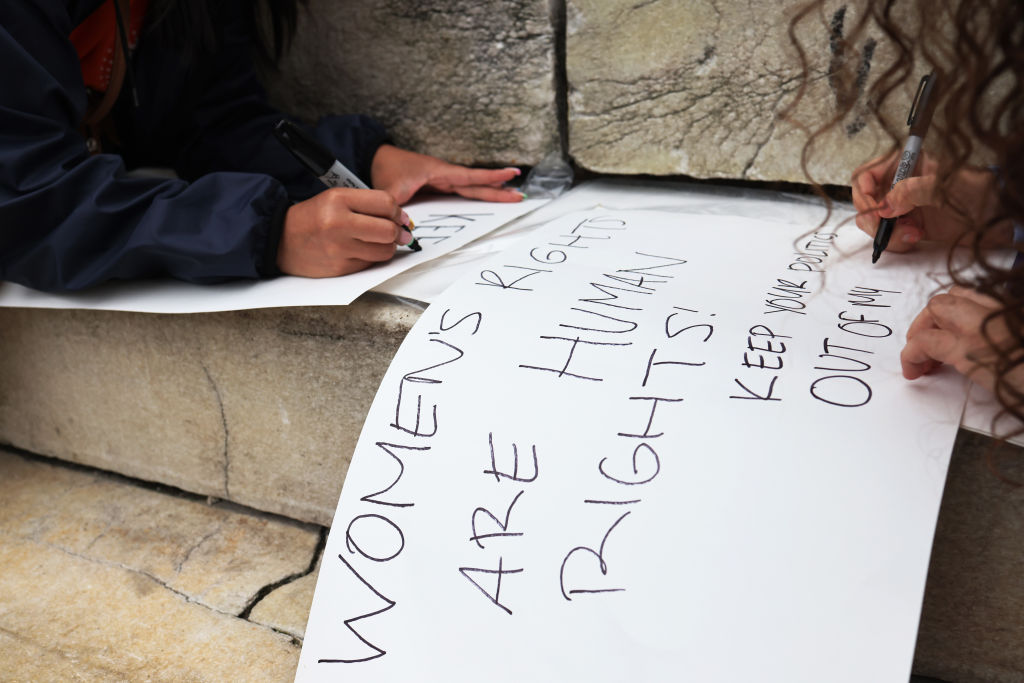Texas' abortion ban is being copied for other states, says pro-life group


A free daily email with the biggest news stories of the day – and the best features from TheWeek.com
You are now subscribed
Your newsletter sign-up was successful
Texas' new, incredibly restrictive abortion law, which the U.S. Supreme Court declined to block in a 5-4 decision, has already piqued the interest of other states looking to enact an extreme abortion ban of their own, Time reports.
John Seago, legislative director of the pro-life group Texas Right to Life — which also helped author the bill — told Time he has already heard from other states interested in copying the law's controversial approach, and that the group is even drafting legislation for some.
"This is a valid public policy tool and we're excited to see how it works," said Seago.
The Week
Escape your echo chamber. Get the facts behind the news, plus analysis from multiple perspectives.

Sign up for The Week's Free Newsletters
From our morning news briefing to a weekly Good News Newsletter, get the best of The Week delivered directly to your inbox.
From our morning news briefing to a weekly Good News Newsletter, get the best of The Week delivered directly to your inbox.
The law's extremism lies not only in that it effectively bans abortions after six weeks — which is before many people even know they're pregnant — but it financially incentivizes private citizens to sue anyone who "aids and abets" in the abortion process, including clinics, physicians, and even rideshare drivers. Brigitte Amiri, deputy director of the Reproductive Freedom Project at the ACLU, said the law "does open the floodgates to lawsuits, and even frivolous lawsuits, just to harass abortion providers."
What's more, because of the way the legislation is written, there's no specific individual or obvious entity for abortion rights advocates to sue over the law's constitutionality. "The Constitution, including Roe v. Wade, only applies against the government, it doesn't apply against private individuals," said Laurence Tribe, a leading constitutional law expert at Harvard University. "That's what makes this really dangerous." Read more at Time.
A free daily email with the biggest news stories of the day – and the best features from TheWeek.com
Brigid Kennedy worked at The Week from 2021 to 2023 as a staff writer, junior editor and then story editor, with an interest in U.S. politics, the economy and the music industry.
-
 Nuuk becomes ground zero for Greenland’s diplomatic straits
Nuuk becomes ground zero for Greenland’s diplomatic straitsIN THE SPOTLIGHT A flurry of new consular activity in the remote Danish protectorate shows how important Greenland has become to Europeans’ anxiety about American imperialism
-
 ‘This is something that happens all too often’
‘This is something that happens all too often’Instant Opinion Opinion, comment and editorials of the day
-
 House votes to end Trump’s Canada tariffs
House votes to end Trump’s Canada tariffsSpeed Read Six Republicans joined with Democrats to repeal the president’s tariffs
-
 Nobody seems surprised Wagner's Prigozhin died under suspicious circumstances
Nobody seems surprised Wagner's Prigozhin died under suspicious circumstancesSpeed Read
-
 Western mountain climbers allegedly left Pakistani porter to die on K2
Western mountain climbers allegedly left Pakistani porter to die on K2Speed Read
-
 'Circular saw blades' divide controversial Rio Grande buoys installed by Texas governor
'Circular saw blades' divide controversial Rio Grande buoys installed by Texas governorSpeed Read
-
 Los Angeles city workers stage 1-day walkout over labor conditions
Los Angeles city workers stage 1-day walkout over labor conditionsSpeed Read
-
 Mega Millions jackpot climbs to an estimated $1.55 billion
Mega Millions jackpot climbs to an estimated $1.55 billionSpeed Read
-
 Bangladesh dealing with worst dengue fever outbreak on record
Bangladesh dealing with worst dengue fever outbreak on recordSpeed Read
-
 Glacial outburst flooding in Juneau destroys homes
Glacial outburst flooding in Juneau destroys homesSpeed Read
-
 Scotland seeking 'monster hunters' to search for fabled Loch Ness creature
Scotland seeking 'monster hunters' to search for fabled Loch Ness creatureSpeed Read
